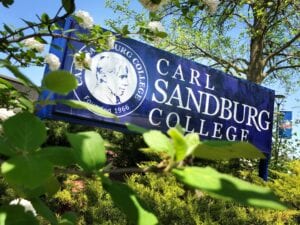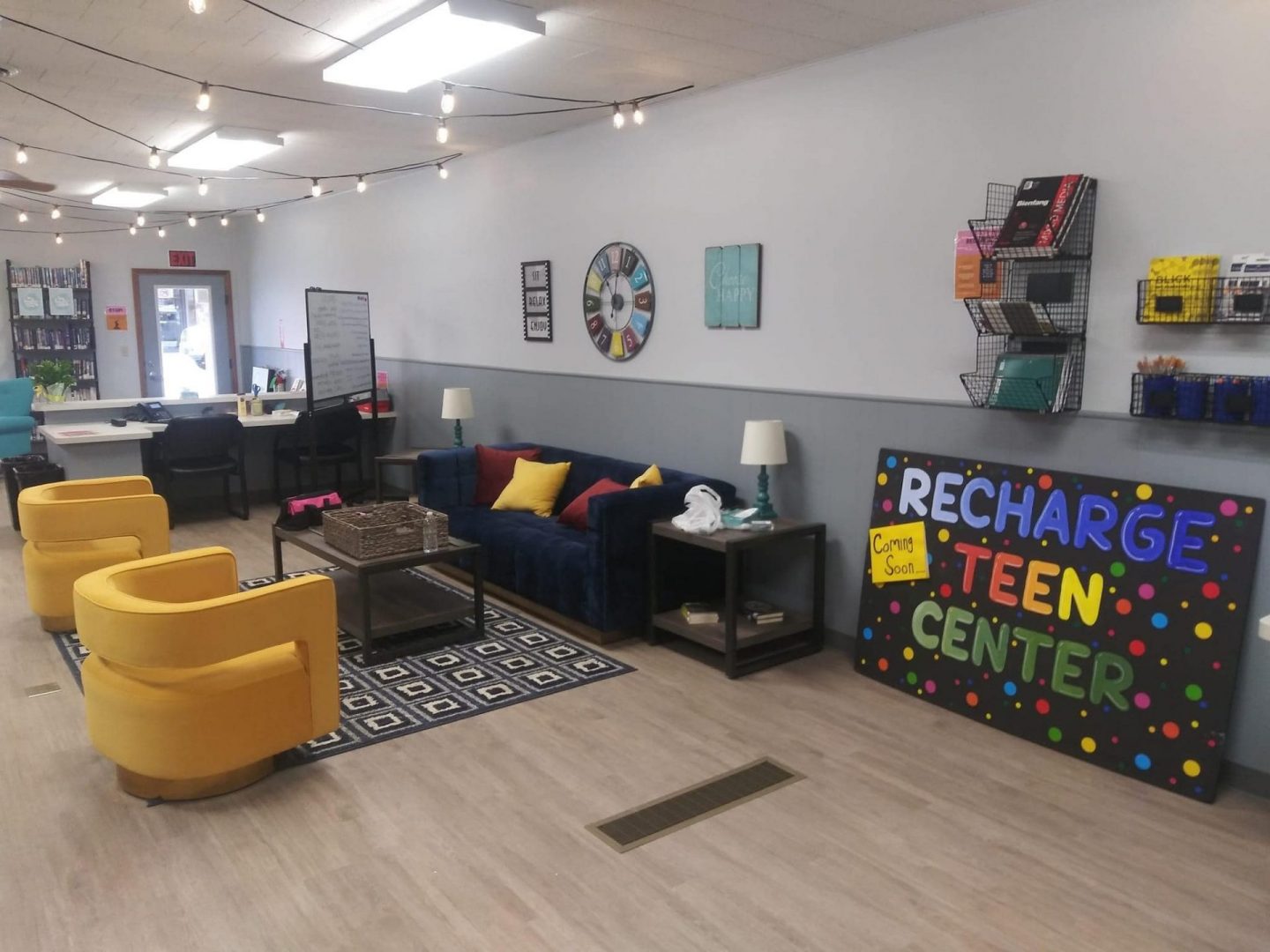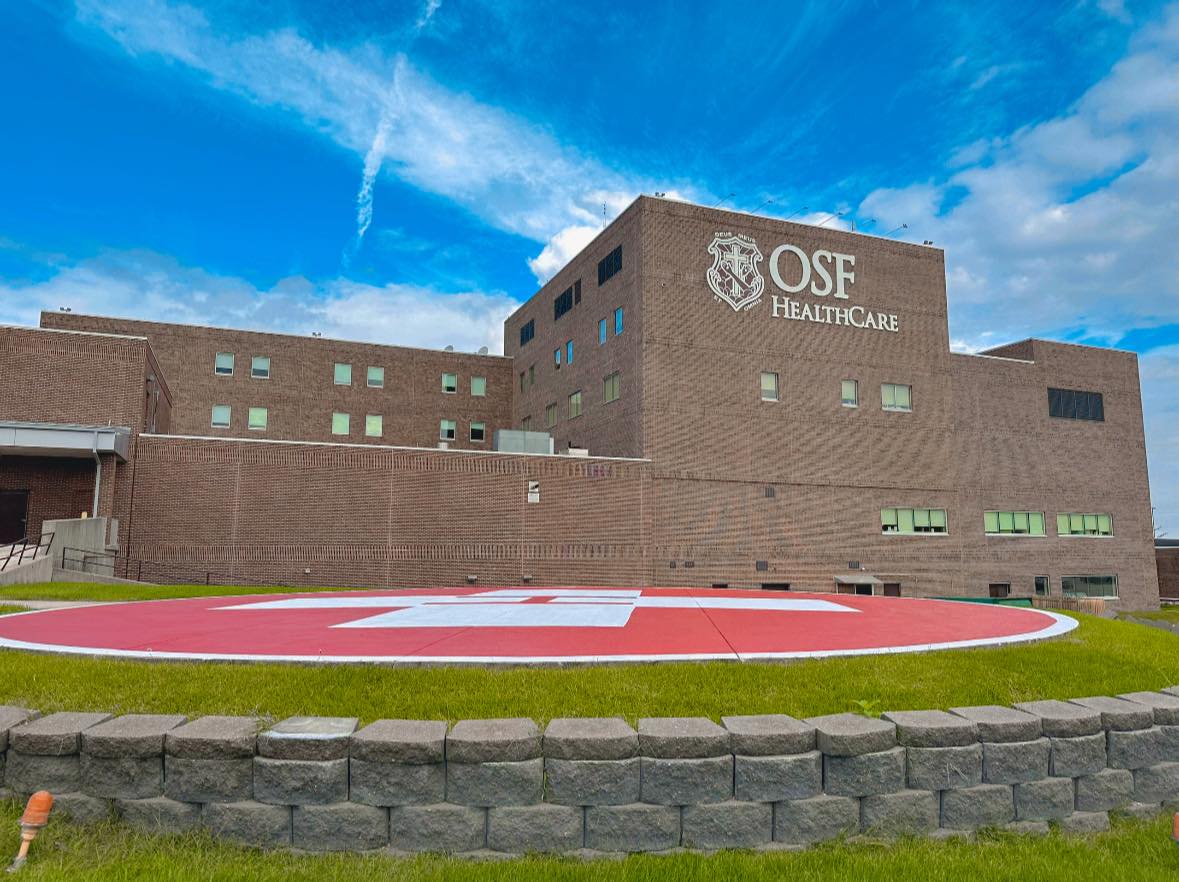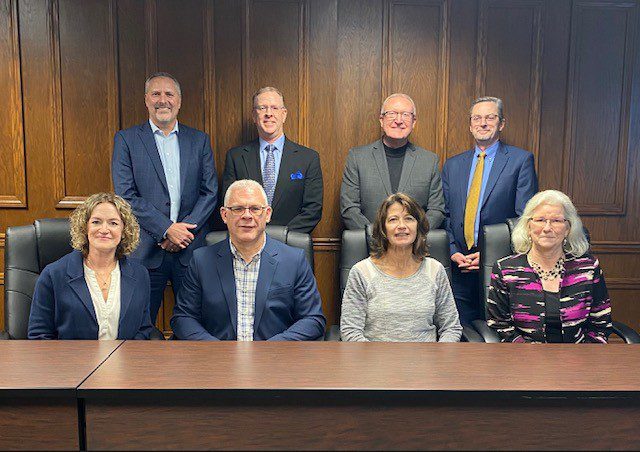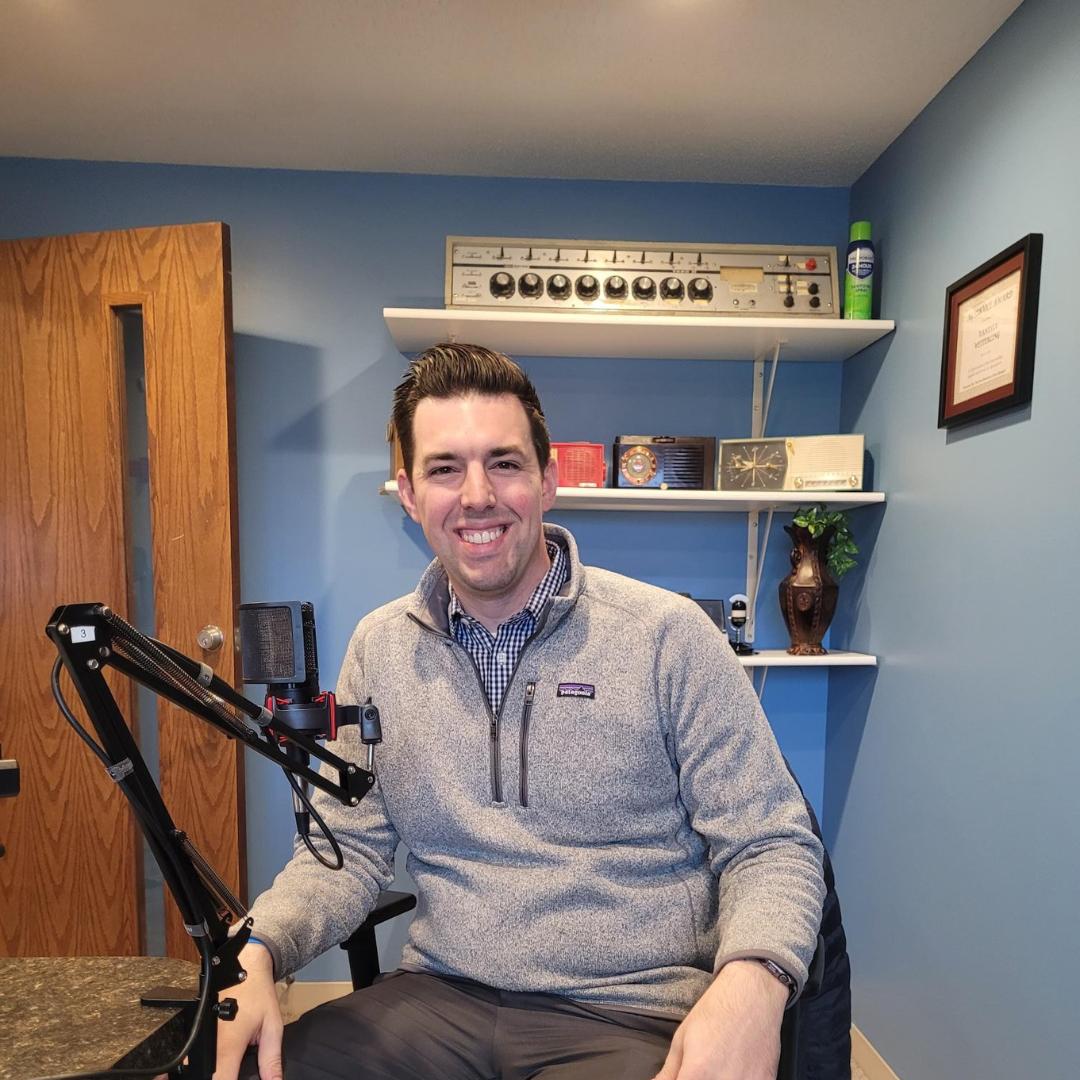“Everybody can be great … because anybody can serve. You don’t have to have a college degree to serve. You don’t have to make your subject and verb agree to serve. You only need a heart full of grace. A soul generated by love.” – Martin Luther King Jr.
Monmouth College’s inaugural all-campus day of service was one of the highlights of its observation of Martin Luther King Jr. Day.
For the first time on the day honoring the most visible leader of the civil rights movement, the College’s afternoon classes were canceled and more than 125 students went into the community to volunteer at local businesses and organizations, including the Warren County YMCA, Western Illinois Animal Rescue, Legacy Estates, Courtyard Estates and the Warren County United Way.
“It’s a good opportunity to get out and do something other than what we usually do,” said Karlie Drish ’22 of Milan, Ill., who volunteered her time at County Market. “It’s nice to give other people help.”
“It’s great to get out in the community and help out in any way that we can,” added Drish’s co-worker, Ashley Farris ’20 of Flanagan, Ill.
Monmouth Assistant Director of Leadership and Service Jake McLean said the day of service was the largest such event at Monmouth since he began working at the College four years ago.
“I’m continuously amazed at how our students show up for service events like this one,” he said. “The atmosphere in the main dining hall where we gathered was great and our students seemed to have a good time. I know our community appreciates the hard work they put in.”
The day’s events got underway with the College’s annual Martin Luther King Jr. Day Convocation in Dahl Chapel and Auditorium, featuring a keynote address by Rebecca Ginsburg, a University of Illinois professor who founded the Education Justice Project. The College’s Colorful Voices of Praise Dance Team performed, as did jazz vocalist Semenya McCord. Abierre Minor ’21 of Chicago read two pieces of her poetry.
‘The key civil rights issue’
One of about 120 programs in the nation that works to educate the incarcerated, the Education Justice Project enables inmates at the Danville (Ill.) Correctional Center to receive official University of Illinois course credits. It also publishes a comprehensive guide for reentry following the conclusion of their incarceration.
After reminding the audience of King’s accomplishments, Ginsburg explained the connection between King’s story and the state of incarceration in the United States. She also cited the work of Michelle Alexander, who wrote the 2010 bestselling book The New Jim Crow: Mass Incarceration in the Age of Colorblindness.
“Our system of incarceration does the same thing Jim Crow did – it’s just an updated version,” said Ginsburg, referring to the “system of codes and customs” – ranging from segregated water fountains to schools – that made African-Americans “second-class citizens” prior to the Civil Rights Act of 1964.
Ginsburg said that “second-class” status comes in a variety of forms, many involving access. For example, only the states of Maine and Vermont allow incarcerated individuals to vote. Many states have restrictions on which previously incarcerated individuals can vote, and a few states completely restrict it.
Employment practices are another major form of discrimination faced by the previously incarcerated. Ginsburg shared an example of a group of researchers that sent out similar résumés, with the only variables being race (white or African-American) and whether the applicant had been incarcerated. The résumés of white, non-incarcerated applicants were called back 34 percent of the time; 17 percent of white, previously incarcerated applicants were called back, which was a higher rate than non-incarcerated African-Americans (14 percent). Previously incarcerated African-American applicants were called back just 5 percent of the time.
Pointing to a screen displaying that data, Ginsburg said, “This is what it means to say that mass incarceration is one of the key civil rights issue of our time.”
Ginsburg said that 33 percent of African-American men have a felony conviction.
“Their access to social, economic and political opportunities is compromised,” she said. “We treat them as second-class citizens,” or to quote Alexander, “Many people say: ‘Well, that’s just not a big deal. So you can’t vote. What’s the problem with that?’ Denying someone the right to vote says to them: ‘You are no longer one of us. You’re not a citizen. Your voice doesn’t count. You’re relegated to a permanent second-class status. … You’re not a person to us, a person worth counting, a person worth hearing.”
Ginsburg’s invitation to speak on campus came from Monmouth’s chaplain, the Rev. Dr. Teri Ott, who has helped a group of Monmouth faculty and staff work with inmates at Henry Hill Correctional Center in Galesburg. She met Ginsburg through that work, and said the Illinois professor has “encouraged our efforts.”
“They want to make a difference,” said Ott of the inmates she’s encountered over the past several months. “There’s just a whole bunch of human potential locked up in that place.”
In his opening remarks at the convocation, Monmouth President Clarence Wyatt said King taught us “to judge others not by skin color, or by our faith, or by our socio-economic status … or any other set of attributes, but rather, by the content of our character.”
***Report Courtesy of Monmouth College**








